For any millennial pop culture aficionado coming of age in the early 2000s, raunchy Hollywood comedies like American Pie, Superbad, EuroTrip, and Van Wilder were must-watch canon, because of everything they offered up about life, love, friendship, and sex (of course). Most of them were incredibly white (and problematic), a representation of a time when ‘representation’ was nothing but an English word. But, in 2002, in one of those films, out of nowhere, a desi dude popped up.
The eponymous Van Wilder’s sex-starved nerdy friend, named Taj Mahal Badalandabad by (clearly) white writers, was played by Indian American Kal Penn, who made both a mark and an impression, not just as one of the first-ever brown actors (outside of homegrown Kabir Bedi and Amrish Puri or Indian-origin Sarita Chaudhary and Indira Varma, among others), in a commercial Hollywood comedy, but also as a legit comedic force of nature. His supporting role in Van Wilder was followed by a lead role alongside the awesome John Cho in, what is today a cult classic, Harold & Kumar Go to White Castle, and the rest, is history (and historic!).
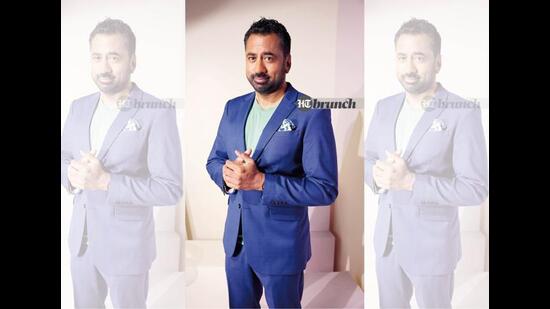
So, when it turned out that one of the OGs, now 45-year-old Penn (who was born Kalpen Modi), was hosting a panel at a conference I was attending in New York, I knew that I had to find a way to speak with him! I reached out to his management, to the conference organisers, into his DMs… and when nothing else worked, reached out to my dear friend, the amazing producer Guneet Monga, to connect me to him. Penn instantly (and sweetly) replied that he’d be happy to catch up, and soon after, I sat down for a heart-to-heart with him about everything from life and comedy to Indian food.
Out of the shade
I first wanted to know about his thoughts on representation today, when brown faces seem far more ubiquitous in Hollywood than ever before. Is he happy with where things are now?
“I remember this type of question came up even when Aishwarya Rai did Oprah… everyone wanted to know if we have arrived,” Penn chuckles. “I think what’s wonderful about the last five to eight years, is that there are so many producers, writers, network executives, creators and actors today than there were 20 years ago. But, to me, the beauty of what we do as artistes is that there’s always an endless number of stories that can be told, and an endless number of characters and lives that people can interact with.”
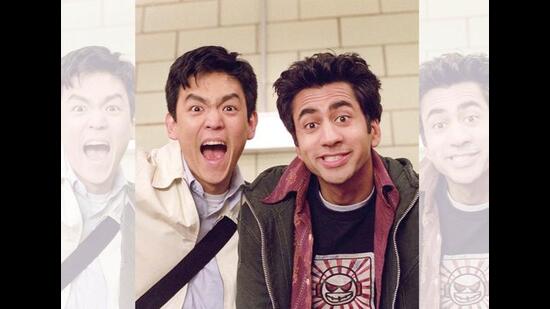
I prod him further on whether he still encounters the kind of caricature-ish characters that were offered to him and that he talks about through some hilarious (and sometimes upsetting) stories in his recently released must-read memoir, You Can’t Be Serious.
“You only have to turn on the TV to see the diversity today, and that progress is in no small part thanks to an audience that’s hungry for characters that are not stereotypes,” Penn thoughtfully answers. “And while you have to laugh at how absurd some of my (earlier encounters) were, I don’t want us to forget that that sort of origin story is not just of me, but of at least two generations of Asian American and South Asian actors, whose names we may never know as household names. Not because they didn’t go to drama school or weren’t incredibly talented, but because it’s been a systemic problem for so very long. That was my point of telling those stories, because they are also their stories.”
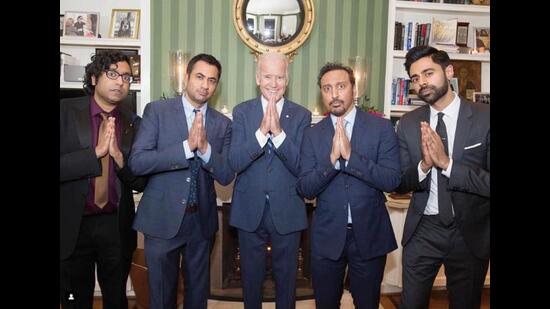
So emotional
As we speak of stories, I ask him how he feels about the challenges that storytelling, art and comedy—all three domains that he’s navigated with much ease—face today, in a polarised world with an ever-angry audience tweeting online, and with every second comedian lamenting about ‘cancel culture’. Is he hopeful about their future?
Speaking about comedy first, Penn dissects the problem, “You know, I’ve heard even directors saying, ‘Oh, I can’t make the movies I used to anymore, because you can’t make jokes anymore.’ And my first thought is, ‘Oh well, it sounds like maybe you don’t have the talent or skill to adapt to a changing audience.’ Like, if your job is to make people laugh, make sure your shit’s funny.”
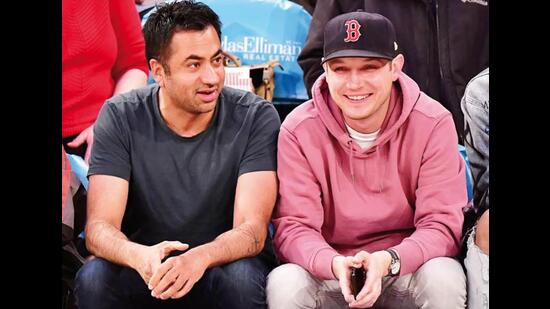
“Even my job is to tell jokes and that’s what I love to do,” he adds. “And I think there’s never been a better time to be funny, and I don’t think any topic is off-limits. I just think there are some regressive jokes that we’ve been told a million times before. But every comedian has every right to say what they want, and if people don’t like that, they have the right to let that comedian know!”
As to the idea of ‘angry fans’, Penn’s answer is refreshing, and his diagnosis exceedingly simple: “Just get off of Twitter,” he says. “In my experience, I think it’s one or two people who get angry (because they are bored), and then a media outlet writes an article on that because they want a bunch of ad revenue from the clicks, and it suddenly seems that everyone’s angry. But if you see how successful so many shows are today, and how much diversity there is, it turns this premise on its head. I always feel like when you talk to the actual fans and hear them out, their point of view is never from a place of anger.”
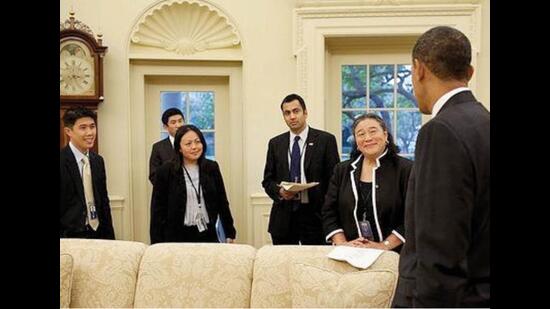
From anger, we pivot to love, and I ask him about his love story with his partner, Josh, that he’s written about in the most candid, funny and wholesome of ways in his book. Did he expect the outpouring of love and headlines about what many perceived to be, his official ‘coming out’?
“I was perhaps naive in not recognising that that chapter may overtake everything else,” Penn says. “Because to me, it was what my editors called a palate cleanser, about a first date that goes wrong and an 11 year old relationship since. The only reason I hadn’t shared much about Josh or my parents and brother earlier, is because they don’t have careers in the public eye, and I wanted to respect their privacy. When writing the book, I just wanted to share my experience as truthfully as possible. So, I asked them, ‘Can I tell some of the ridiculous stories about our relationship?’, and they said, ’Sure!’ and that’s all that went in there.”
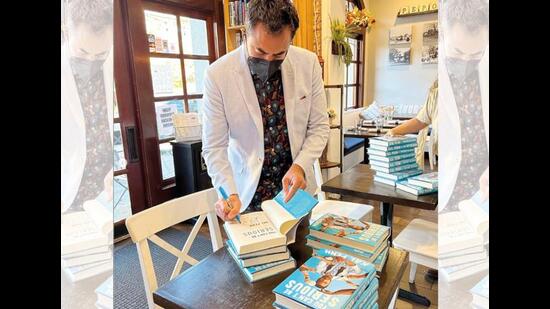
Desi boy
Of all the experiences, one of the funniest ones Penn wrote about was with an Indian producer who invited him to shoot in India but kept delaying payments, and eventually turned out to be associated with some kind of a mafia (!). I joke with Penn if, after something like that, he’s still keen on working in India.
“Hey, I guess people do business in different ways in different places,” Penn laughs. “But I’ve had nothing but incredible experiences in India outside of that. And I’d love to work with a streaming platform there! I’d love to be in something like Delhi Crime, which is so nuanced. Don’t get me wrong, I would love to lip sync and dance, but my favourites are something like Kapoor and Sons, which had phenomenally funny scenes, but also a lot of dire circumstances. Oh and I definitely want to work with my friend Zoya (Akhtar). She’s so incredible! And Guneet, anything with her.”
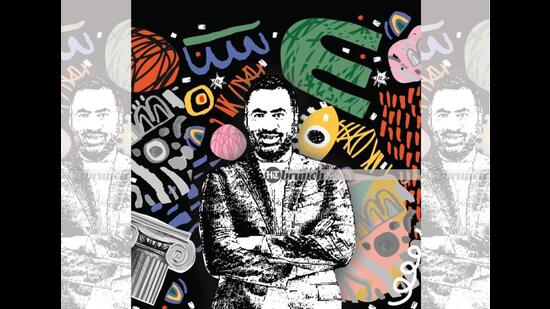
Penn clearly has a deep fondness for India, and one of the more emotional parts of the book is about his grandparents, who had marched with Mahatma Gandhi, and his grandfather, who was a freedom fighter himself. What is his relationship with India now, I am curious.
“So much of my value system comes from my grandparents, and it’s always fed my desire to do work in the realm of public service, and in doing the right thing. And I want to continue that tradition in terms of my relationship with India too. I was really honoured when President Obama invited me to go along his state visit to India a few years ago. I love visiting India!”
The one thing that Penn says that he loves most about India is the food!
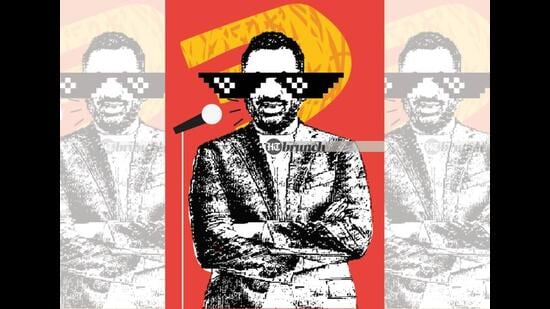
“I mean, family’s always number one, right? To be able to see my aunts and uncles and cousins. But anytime I come to Mumbai, I just drop my stuff off, sneak out and get into an auto, and grab some Babaji’s at Juhu. And I speed back, real quick, so nobody’s the wiser! I’ve hidden this from my relatives for years because if they find out, they’ll never let me do it because they worry I’ll get sick. But it’s the risk that makes it so fun, right?”
I end our conversation by asking him about hope, and what he learned about what brings people together in his role in Barack Obama’s administration as the Associate Director of The White House Office of Public Engagement and Intergovernmental Affairs.
“I learnt that anytime we start to believe that our voices don’t matter, a complacency sets in,” he says. “And people who don’t want us to vote want us to remain complacent. But, if we continue to push forward with things that we all care about, there is really nothing we can’t do.”
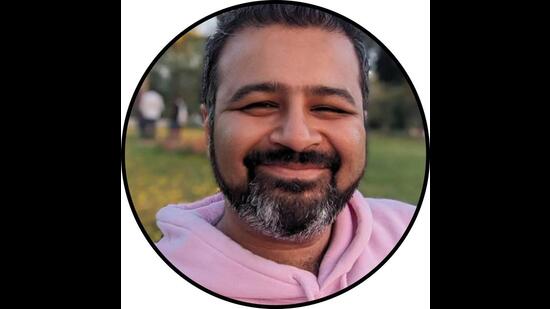
Nikhil Taneja is a writer, producer, storyteller, public speaker, men’s mental health advocate, co-founder of Yuvaa and an HT Brunch columnist, whose column, That Feeling When, appears fortnightly
From HT Brunch, October 29, 2022
Follow us on twitter.com/HTBrunch
Connect with us on facebook.com/hindustantimesbrunch